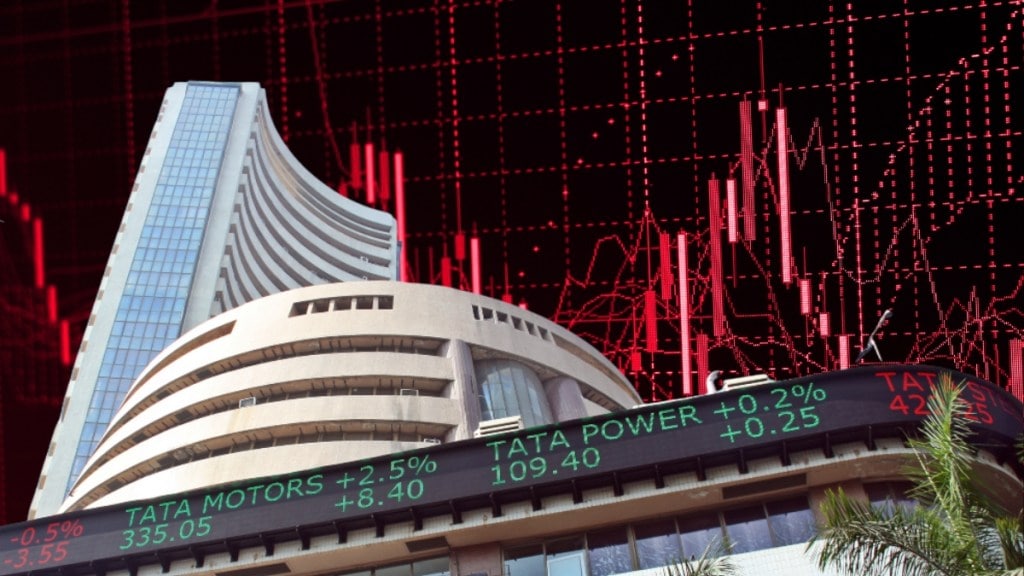BSE’s share price declined as much as 6.1% to an intra-day low of Rs 2,500 on the National Stock Exchange, but rebounded soon after. The fall in the stock price of BSE came after the Securities Exchange Board of India (SEBI) accepted the proposal to shift the expiry day to Thursday. Meanwhile, the National Stock Exchange (NSE) received a nod for Tuesday as its expiry day. Brokerages have turned cautious as a result.
Motilal Oswal on BSE: Slashes target price by 14%
The domestic brokerage house, Motilal Oswal, downgraded BSE to ‘Neutral’, with a revised target price of Rs 2,300. This implies a downside of as much as 14% from the current market price. BSE, under the new regulations, has shifted the expiry of Sensex to Thursday from Tuesday. “We note that after the implementation of the new F&O regulations (effective March 2025), in weeks where markets were open on all five days, the share of each day was in the 18-22% range,” said Motial Oswal.
BSE had an average market share of 8% on Wednesday and Thursday (days influenced by Nifty’s expiry). On Friday, Monday, and Tuesday, the premium turnover market share was 21%, 24%, and 38%, respectively. “Assuming the recent trends and overlaying them on day-wise share in volumes for the industry, we believe that BSE’s market share can be in the range of 18-19% (from 22.6% in May 2025),” said Motilal Oswal.
BSE MD says shifting expiry to Thursday is in interest of markets
Earlier, BSE opted for Tuesday since NSE chose to retain Thursday as the expiry date. With recent regulatory intervention, since NSE had requested on Tuesday, in the overall interests of markets, BSE has taken Thursday,” said BSE’s managing director and chief executive officer, Sundararaman Ramamurthy.
Thursday expiry aligns well with global market practices, with most foreign institutional investors having algorithms aligned with that day of the week, added Ramamurthy. Further, most investors start their derivatives strategy for the week at the start of the week, and thus Thursday expiry offers more time to respond to market developments and optimise their positions and is also spaced well with Tuesday expiry of NSE.
“Thursday has remained the expiry day in India for a long period, where the market witnessed significant growth,” said Ramamurthy.
Expiry day to change for contracts expiring after September 01
The exchanges announced that the expiry day will remain the same for currently active contracts, except for long-dated index options contracts, which will be appropriately adjusted to the expiry day.
Derivative contracts that expire on or before August 31, 2025, will continue with the present expiry date. On the other hand, contracts of BSE and NSE that are to expire after September 1, 2025, will see their expiry day change to Thursday and Tuesday, respectively.
In order to facilitate a seamless transition, the exchanges are anticipated to release detailed circulars shortly, explaining the operational guidelines and implementation procedure.
Also, SEBI said that exchanges will need its approval before launching or modifying any contract expiry or settlement day.
BSE Q4 result 2025
BSE reported a strong performance in the fourth quarter of the financial year 2024-25. Its net profit stood at Rs 494 crore in Q4 FY25, jumping almost 5 times year-on-year, compared with Rs 107 crore in the same quarter last year. Its revenue grew significantly by 75% YoY to Rs 846.6 crore, which was up from Rs 484 crore in Q4FY24.
Additionally, the exchange’s board recommended a dividend of Rs 23 per equity share, which includes a special dividend of Rs 5 per equity share. The record date to determine eligible shareholders for the final dividend was set for May 14, and the dividend payment will be completed on or before September 18.
BSE’s stock performance
The share price of BSE has fallen 7.8% in the last five trading sessions. The stock has given a return of more than 6% in the past one month and 91% in the last three months. BSE’s share price has raised investors’ wealth by 189.51% in the past one year.
